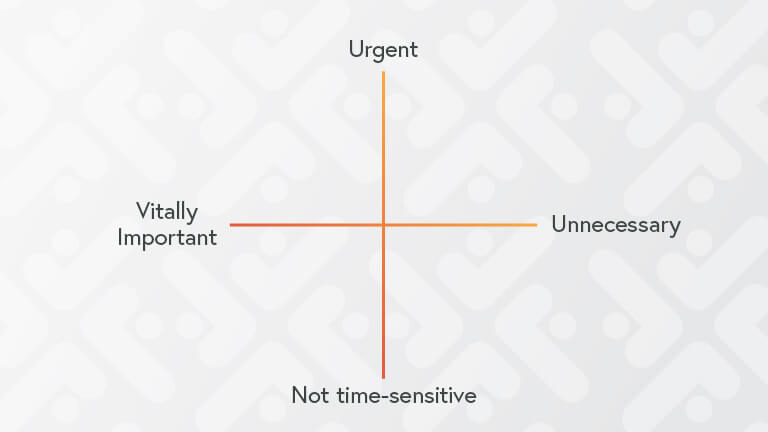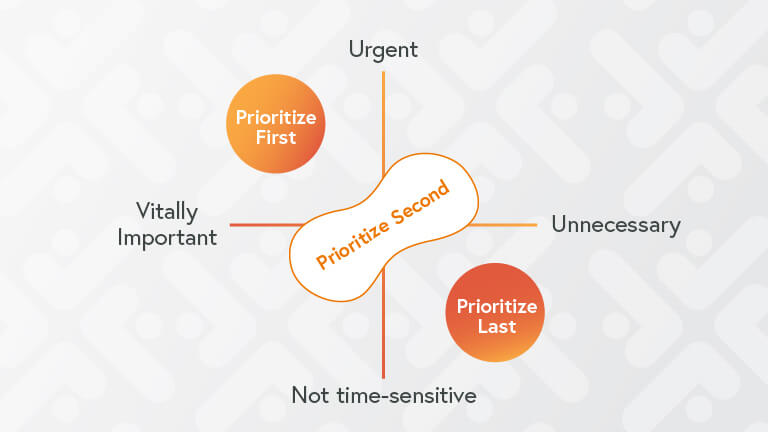Skirting toward the end of Q4 is generally a busy time for any company, especially those whose fiscal year-end aligns with the end of the calendar year. Whether it’s planning for the coming year, trying to use up a designated budget, or trying to complete projects before that year-end deadline, there’s plenty of work to do and—more often than not—it feels like there won’t be enough time to get it all done.
Holidays galore and time-off requests can make a busy schedule feel even more frantic. Overworking ourselves to compensate and get everything done can be tempting, but there are some serious health drawbacks to making personal needs a low priority. By ignoring the root of work stressors and not prioritizing self-care, workers across all levels of an organization may be more susceptible to burnout, which can take months or even years to fully recover from.
If you’re worried about hitting the point of burnout as the holidays near and the year comes to a close, there’s still time to get yourself ahead. Here are a few tips for preventing burnout and reducing stress heading into the holiday season.
Prioritize & Plan Out Projects
Think about the last time you set aside time to simply think and plan. While some may feel this isn’t an effective use of time, taking the time to strategically consider the best course of action to tackle a project list can increase the overall chance of success. Even if you aren’t fully convinced, block some time on your calendar to run through your end-of-year work plan.
It might seem like everything on your plate is equally important and all needs to happen right now, now, now, but more often than not that isn’t the case. Use this time block to figure out what projects you need to complete before the year’s end to be successful, and—more importantly—determine which ones don’t. Simply knowing what tasks are or aren’t important can remove the pressure to complete everything.
Need some help prioritizing? Here are a few tips:
1) Start by writing down all your tasks, even the small ones. Some people like to use sticky notes, others might prefer a simple list.
2) Once you have your list, draw two intersecting lines on a piece of paper or white board, like so:

3) Once you have your axes labeled, categorize each task on your list into one of the quadrants. This exercise will allow you to better visualize the to-dos that are most to least important.

Delegate Tasks (Yes, Even THAT One)
The idea of delegating a task to someone else can be a terrifying prospect, especially for those who don’t do it frequently. While there are many reasons people may choose not to delegate, it’s one of the best ways to manage an otherwise unmanageable workload without burning out. It also creates more time for impactful, high-value work that otherwise might fall to the wayside.
Struggling to convince yourself to delegate, or feeling averse to the idea? Here’s our president, Dan Corp, talking about why we avoid delegating, and some of the reasons that might be behind that decision:
Once you decide to delegate, it’s time to determine what you’re going to pass off. That four-quadrant chart you organized your to-dos into is going to come in handy here.
When deciding what tasks to delegate, think about who on your team—not necessarily people you manage, but also those you work with—has the skills to complete the various tasks on your list. Starting with the urgent, vitally important projects and working your way down, work with your teammates or team members to divvy up the important work you need done.
There may be a learning curve, but in the long run, teaching others how to complete these tasks will be incredibly helpful to prevent burnout. And remember, being productive isn’t the same as being busy. Delegating allows you to prioritize productivity while minimizing overwhelm.
Completely Disconnect During Time Off
We’ve talked pretty extensively about this before (you can read all about that here, plus tips for how to set teams up for success), but here’s the gist. A lot of people, especially organizational leaders, feel guilty for completely disconnecting from work when they’re away. But when people start feeling overwhelmed at work and decide to take a break, they don’t actually gain full benefits if they aren’t fully disconnected.
Team members taking breaks away from work is also important for long-term organizational health. It provides the individuals still at work with the chance to step up to the plate. They can solve problems on their own, which—while the results likely won’t be perfect—offers a great opportunity for growth and removes pressure from those taking time off to stay connected.
Make Time for Energizing Activities

Think about the things that leave you feeling refreshed and recharged. Maybe it’s spending time with friends and family, or going for a peaceful walk in nature. It could be getting a good workout in (which can increase your total energy over time), or reading a riveting book on your favorite topic. Whatever it is that feeds you, make sure you’re prioritizing time for it.
Prioritizing energizing activities doesn’t need to require significant time commitments. Instead of spending four straight hours doing something you enjoy, try to commit small bits of time more frequently. If nature walks give you energy, make a promise to go for one each weekend, or take walks after dinner a few days each week. Even on days or weeks with a packed schedule, intentionally make the time to do something enjoyable.
Break Unhealthy Cycles
If you’ve ever worked extra time on top of your usual schedule, gone to bed, and felt less rested the next day, you aren’t alone. In fact, you might find yourself caught in a regular cycle of working late, getting inadequate sleep, and working late again to compensate for a lack of focus during the day. It’s a difficult cycle to break, but one that’s necessary for preventing burnout and longer-term health issues.
Head Into the Holidays With a Plan
Burnout can sneak up surprisingly fast and have a substantial impact on personal wellbeing and professional productivity. While no amount of planning will completely eliminate the stress that comes with the end of the calendar year, it’s absolutely possible to set yourself—and your teams—up for success. Being intentional about changing habits can also improve workload management heading into the new year, which is beneficial for everyone long-term.
Interested in more business, team and self-management tips like these? Check out Find Your Lead, our training program for new, struggling or overwhelmed managers or leaders. Our resources help individuals get up-to-speed quicker on business principles while growing their confidence as they find footing.
Potentially interested in attending a course, or just want to know when the latest educational videos go live? Sign up for the Find Your Lead mailing list! Skip the junk and stay in-the-loop:



